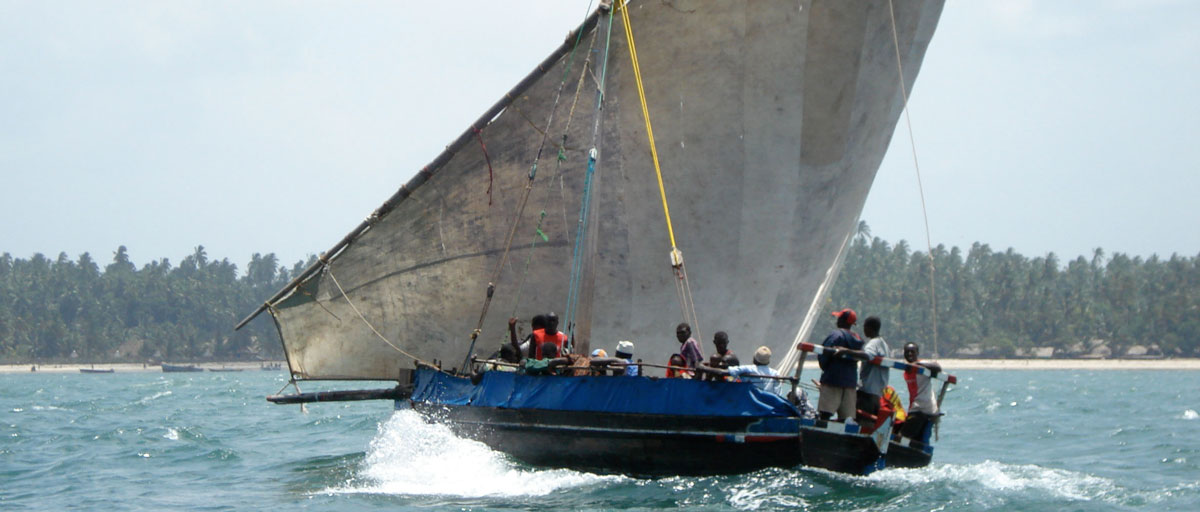
Study evaluates the scientific rigour behind claims of the importance of capture fisheries and aquaculture for food security and poverty alleviation Photo: M. Troell/Azote
Fisheries and aquaculture
Fish matters - but how?
Study investigates the science behind claims that fisheries support food security and help in poverty alleviation
- The study supports for part of the narrative around fisheries and aquaculture, but some uncertainty remains
- Studies on fisheries’ contributions to poverty alleviation provide inconsistent results
- Evidence-based research and policy narratives are often disconnected
That fish is important for many poor is a statement that few would question. Within the developing community fish is generally upheld as important for both food security and poverty reduction in many countries around the world.
But on what research is this narrative based and what is the scientific quality and consistency of supporting literature?
A recent study published in World Development set out to evaluate the evidence base for the capture fisheries' and aquaculture sectors' contribution to food security and poverty reduction.
The paper is co-authored by centre researcher Max Troell along with an international team of scientists including Chris Béné at the International Center for Tropical Agriculture (CIAT/CGIAR).
The aim of the study was to conduct a specific review to assess the scientific quality and consistency of existing literature focusing on fisheries link to food security and poverty, as well as identifying and discussing inconsistencies.
The review covered 202 academic research documents from the period 2003- 2014 focusing on Low and Middle Income Countries (LMICs).
"The first challenge involved coming up with a rigorous protocol for identifying, categorising and scoring relevant literature and I think we managed to develop a system that enabled us to do this in a consistent and transparent way," explains Max Troell.
Fish for food or for cash flow?
Overall the review identified quite a notable variation in terms of scientific quality and methodological rigour through the 202 studies.
Taken together the study presented support for part of the narrative around fisheries and aquaculture, but some uncertainty remains.
"There is no doubt that fisheries can contribute to nutrition and food security, but the links between capture fisheries and aquaculture, and poverty alleviation are complex and still to some extent unclear"
MaxTroell, co-author
The analysis showed that studies on fisheries’ contributions to poverty alleviation on national and household level lack good conceptual models and produce inconsistent results.
For aquaculture this was different as national and household studies focused mainly on export value chains and used diverse approaches.
Some degree of poverty alleviation and possibly other positive outcomes for fish farmers was identified in aquaculture studies, but these outcomes depended to a large extent on the specific farming contexts and on whether the aquaculture practices had come from within communities or as a result of development assistance interventions.
Six steps to success
The study identified six key knowledge gaps for policy-makers, practitioners and researchers:
1. Key components of capture fisheries and aquaculture are often not accounted for or miscounted in national statistics. Few socio-economic studies have looked at the impact of fisheries or aquaculture on low-income households.
2. Gender relations as well as health and safety need to be addressed in the fisheries sector. Women are often under-represented in statistics, and health and safety issues are often neglected.
3. Poverty is not clearly conceptualised, articulated or measured in fisheries and aquaculture studies. For example recognition is needed that addressing fisheries management issues in developing countries is not the same as addressing the issue per se.
4. For aquaculture many questions remain concerning who benefits and at what cost to whom. The causal effect between aquaculture development, food security and poverty alleviation is not necessarily a straightforward one.
5. Problems persist in the area of nutrition and determining the impact of fish availability on micronutrient status and other measurables.
6. There is an urgent need for more studies to explore the local-level impacts of global drivers of food security such as urbanisation and climate change. For example, lack of reliable data on small-scale fisheries risk complicating the uncertainty induced by climate change on the dynamics of fish stocks.
In general, impacts of fish trade on food security and poverty alleviation were found ambiguous and confounded by a focus on international trade and a lack of consistent methods.
"Importantly, the evaluation reveals that evidence-based research and policy narratives are often disconnected," concludes Chris Béné. "This disconnection may lead to questionable policy recommendations. We believe that filling the six identified gaps can be an important step towards sounder policy."
RELATED INFO
Citation: Béné, C., R. Arthur, H. Norbury, E. H. Allison, M.C.M Beveridge, S. Bush, L. Campling, W. Leschen, D. Little, D. Squires, S. Thilsted, M. Troell; M. Williams (2016). Contribution of fisheries and aquaculture to food security and poverty reduction: assessing the current evidence. World Development, 79: 177-196.
Max Troell is a system ecologist mainly working with environmental problems associated with aquaculture. This work focuses on inter-linkages between aquaculture and fisheries, on different spatial scales.






